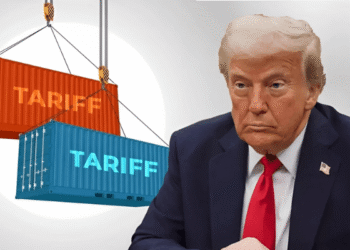In an official statement, Dangote Group disowns the killer truck in the Ondo crash, insisting the vehicle has no connection to them.
The name Dangote is never far from controversy whenever a truck crushes lives on Nigerian roads, so, when another accident struck in Akungba-Akoko, claiming several lives, it wasn’t long before fingers pointed at the Dangote Group, but this time, the company was quick to wash its hands off the tragedy.
The Tragic Akungba Crash
The accident happened on Wednesday night around 7:30 p.m. in the university town of Akungba-Akoko, Ondo State. According to reports, the truck, loaded with stone dust, lost control and rammed into a barricade at the main gate of Adekunle Ajasin University. Eyewitnesses said the impact was so severe that it sent panic through the campus community.

While the Federal Road Safety Corps (FRSC) confirmed three deaths, students and locals claimed the number was much higher, some said at least ten people were crushed. The Students’ Union Government’s Public Relations Officer, Mosadoluwa Ajidagba, explained that the truck, coming from Ikare, suffered brake failure before it smashed into the barricade.
This was another painful reminder of Nigeria’s endless battle with reckless truck drivers and poor road safety.
Dangote Group Clears Its Name
Barely 24 hours after the news spread, Dangote Group disowns the killer truck in the Ondo crash, claiming it was not one of their vehicles. In a detailed statement, the company explained that the truck in question, with plate number JJJ 365 XB, belonged to an independent logistics firm and not the Dangote Group or any of its subsidiaries.
According to the statement, “Verified vehicle registration details confirm that the truck is owned and operated by an independent logistics company with no affiliation to Dangote Group. For the avoidance of doubt, the truck was not conveying any Dangote products but was transporting crushed stones in reused sacks bearing various brand names.”
In other words, Dangote was saying, “Not our truck, not our fault.”
The company went further to defend its reputation, saying all genuine Dangote trucks are properly branded, tracked, and managed by trained drivers under strict safety and compliance rules. They also claimed that each of their trucks carries unique fleet numbers for easy identification.
The Public’s Growing Distrust
Nigerians have heard this story before. Every time a heavy-duty truck kills people, the first guess is always “Dangote.” It’s not just because the company owns a massive fleet of trucks that dominate highways across the country, it’s also because the stories of reckless Dangote drivers and poorly maintained trucks are endless.
The public reaction to Dangote Group disowning the killer truck in the Ondo crash was mixed. Some accepted the company’s clarification. Others scoffed, arguing that even if this one wasn’t theirs, the group has more than enough blood on its hands from years of similar incidents.
People still remember when Phyna, the Big Brother Naija winner, called out Dangote trucks after her sister’s accident. That outrage echoed the pain of many Nigerians who have lost loved ones to trucks allegedly linked to the conglomerate.
Who Really Owns the Roads?
The problem goes beyond ownership, it’s about accountability. Whether it’s a real Dangote truck or one borrowing the name, these massive vehicles keep moving with little oversight, and people keep dying. The government, on its part, always promises “investigations,” but we all know how that ends with silence.
It’s hard to separate Aliko Dangote’s business empire from the public anger that follows every fatal crash. The company’s reach is so wide that even trucks carrying ordinary cement sacks are assumed to belong to them. That’s how powerful and damaging the brand association has become.

















